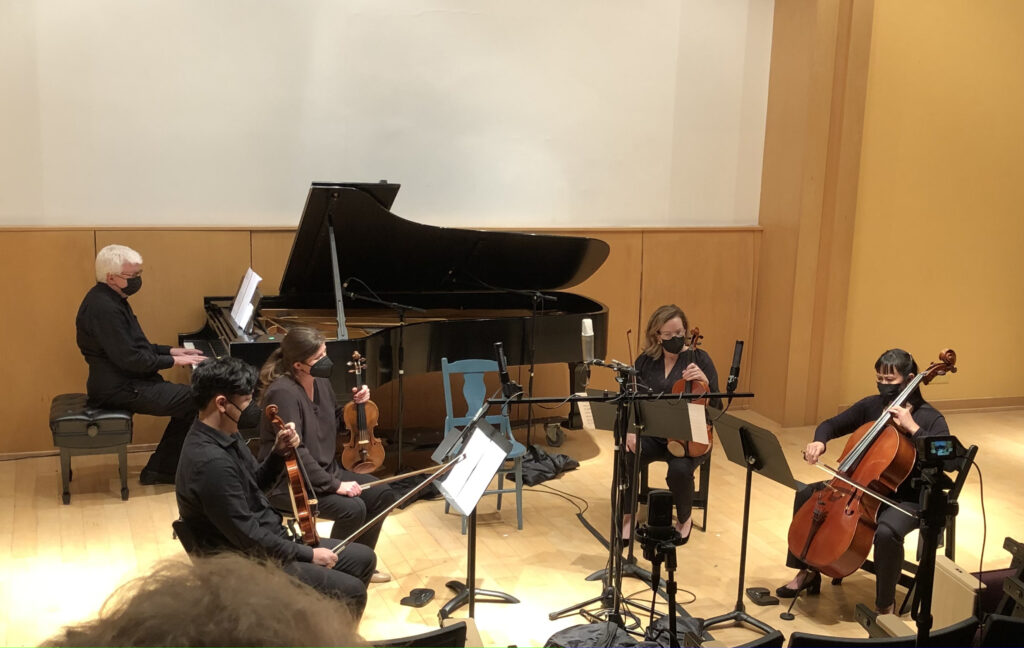“Behind her words is the restraint
of a thousand years of tears.”
Those were the words I heard last week when I woke from a dream in which someone was watching me talk to you tonight. That gave me pause.
Those tears also soak the annals of music history.
- Tears of composer Ethel Smyth, who conducted suffragettes through the bars of her cell window with a toothbrush.
- Tears of Mozart’s sister, Maria, equally talented, whose father refused to let her compose.
- 50 years later, a Chicago music critic Upton wrote in his book: “Women weren’t meant to compose. They lack the innate creativity to compose good music, due to their ‘biological disposition.’”
Can you imagine the tears of women performers told they would lower the standard?
- The legendary Vienna Philharmonic (established in the 1800s) didn’t accept its first full member female until 2003.
- That was six years after their government forced them to accept women, if what I’ve read is accurate.
Or the tears of those disgraced for the instrument they chose?
When Sarah Willis, the first female brass player in the Berlin Philharmonic (not until 2001), wanted to begin horn, she was told that the school horn was not for her but for the boys.
- I was told not to play clarinet in a beauty contest because it was “unladylike.” My college professor told me to forget clarinet and go be a wife and mother. Due solely to the encouragement of the late great Leon Russianoff, I entered the Master’s program in performance at The Juilliard School six year later.
- Even the well-meaning parents of my dear friend Laura Flax, to whom this piece is dedicated, wanted her to be a secretary until she found a husband, but she had a different idea. In 1989 this fearless forerunner became the first female principal clarinetist in a top US orchestra. (The first as late as 1989?)
So you see, the Empty Chair isn’t some kind of marketing ploy. It honors the cry of women who have carved a path for us through the lies to where we stand and sit tonight.
I had had in mind to write a string quartet, but I didn’t know what to write about. When I found out Laura had died, I was numb. I went up to my studio, stared at the empty string quartet score, and all I could write was one long note in the cello, over and over. Then as the anguish built, I started pounding all over the piano like a three-year old. Familiar harmonies felt shallow. I needed raw.
As I quieted down, I found those colors when I remembered the last piece I heard Laura play: Messiah’s Quartet for the End of Time, which he wrote during his imprisonment in the Stalag VIII concentration camp.
Like that piece, this lament can’t be accessed intellectually. It undulates through the discomfort of loss: the numbness, the wavering back and forth of the “what ifs” and “if onlys” of bargaining, raw anger, and surrender. But in the end, you’ll hear a glimmer of hope.
Why hope?
Laura Flax and those women before her left us with hope that things can and do and will change for us if we only believe.
Now I invite you to join us in this world premiere once the recording is available on ALIAS’s YouTube channel. Picture a scrap of paper in your mind, write the name of a woman who impacted you, and in your mind, put it on the empty chair. Then let these brilliant musicians carry you through that loss into the hope they left you.
